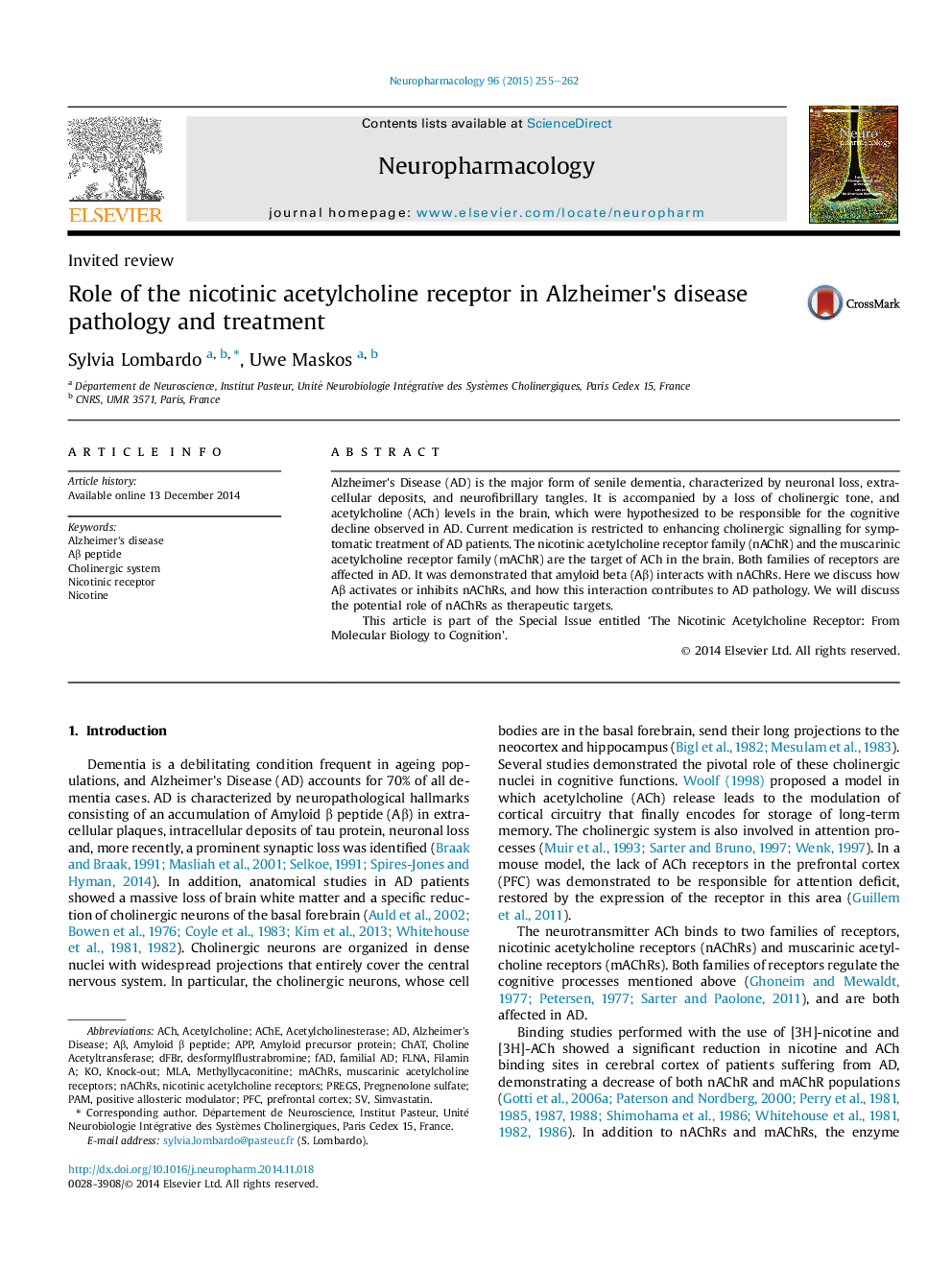| کد مقاله | کد نشریه | سال انتشار | مقاله انگلیسی | نسخه تمام متن |
|---|---|---|---|---|
| 2493161 | 1115474 | 2015 | 8 صفحه PDF | دانلود رایگان |

• The cholinergic system and the acetylcholine receptors are affected in Alzheimer's disease.
• The Aβ peptide interacts directly with α7 and β2 subunits of the nicotinic receptor.
• The Aβ peptide has both agonist and antagonist effects on nAChRs.
• The nicotinic acetylcholine receptor can be used as therapeutic target for Alzheimer's disease.
Alzheimer's Disease (AD) is the major form of senile dementia, characterized by neuronal loss, extracellular deposits, and neurofibrillary tangles. It is accompanied by a loss of cholinergic tone, and acetylcholine (ACh) levels in the brain, which were hypothesized to be responsible for the cognitive decline observed in AD. Current medication is restricted to enhancing cholinergic signalling for symptomatic treatment of AD patients. The nicotinic acetylcholine receptor family (nAChR) and the muscarinic acetylcholine receptor family (mAChR) are the target of ACh in the brain. Both families of receptors are affected in AD. It was demonstrated that amyloid beta (Aβ) interacts with nAChRs. Here we discuss how Aβ activates or inhibits nAChRs, and how this interaction contributes to AD pathology. We will discuss the potential role of nAChRs as therapeutic targets.This article is part of the Special Issue entitled ‘The Nicotinic Acetylcholine Receptor: From Molecular Biology to Cognition’.
Journal: Neuropharmacology - Volume 96, Part B, September 2015, Pages 255–262